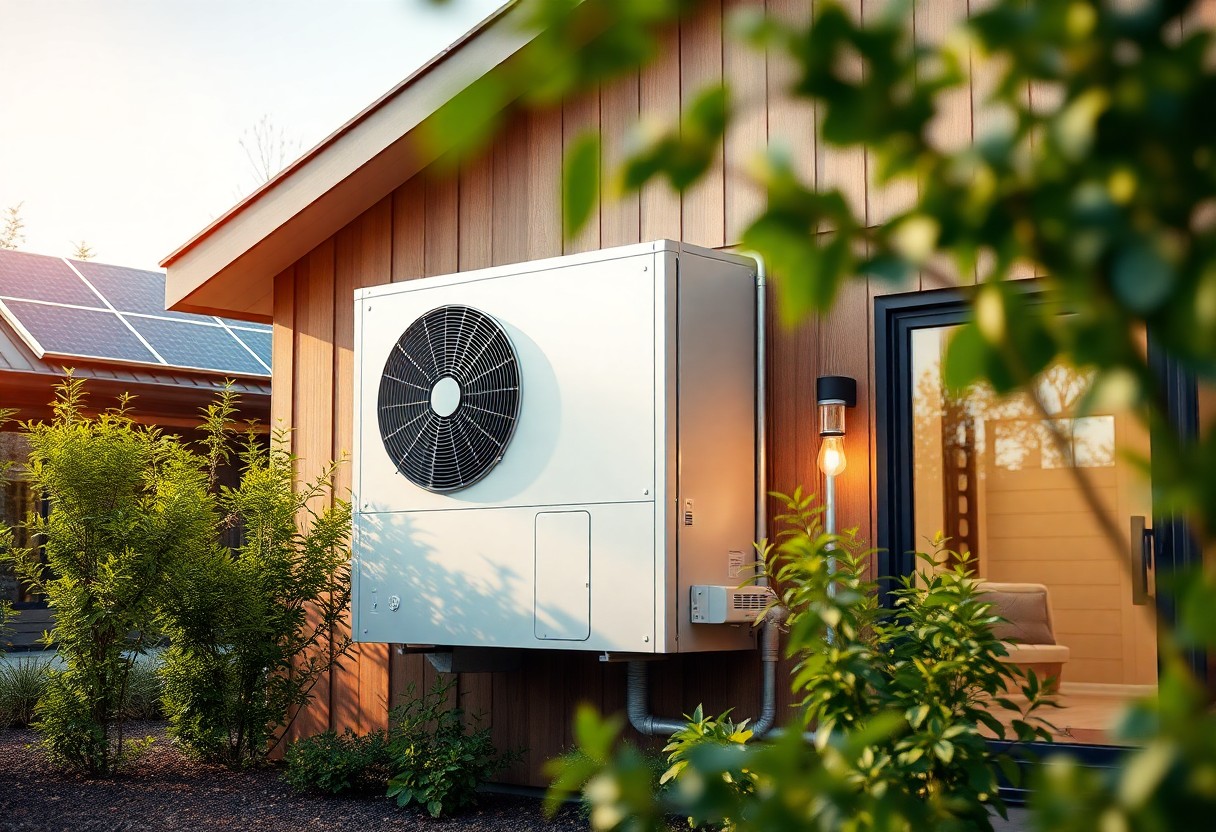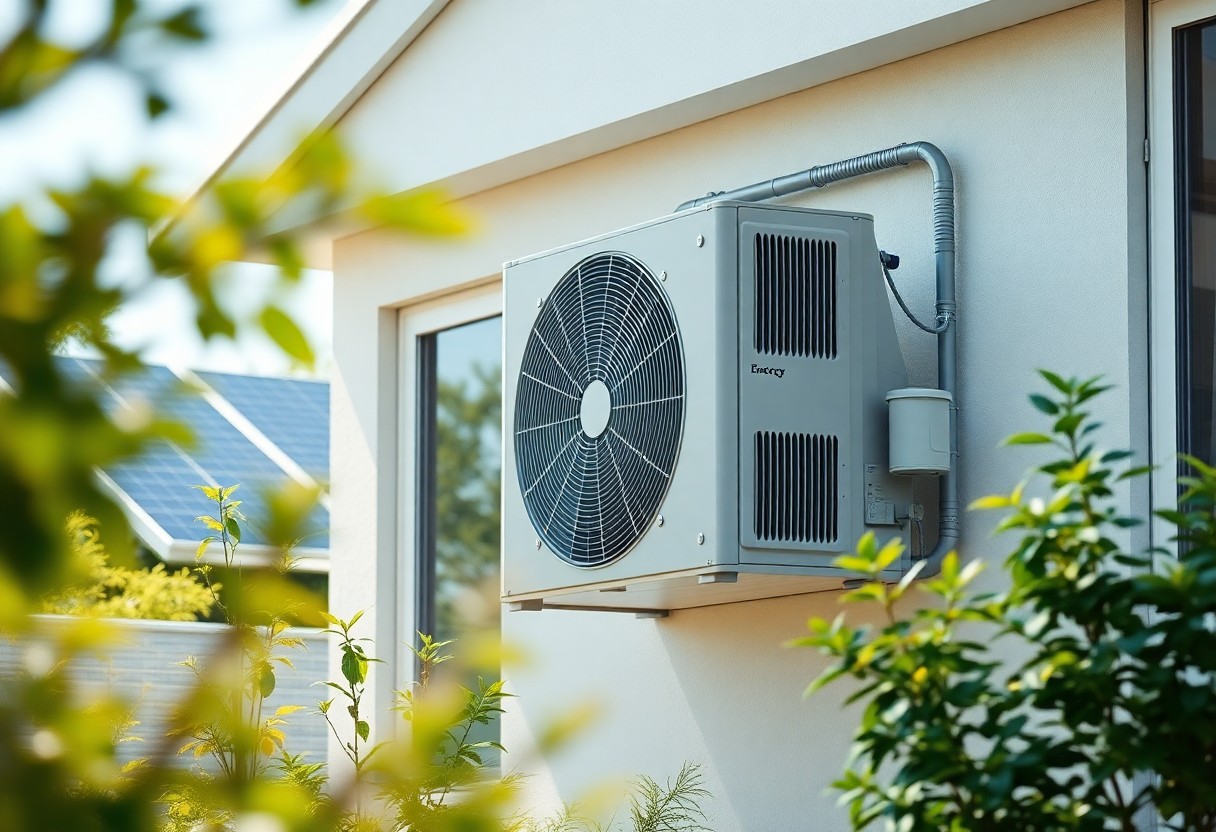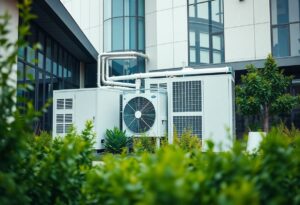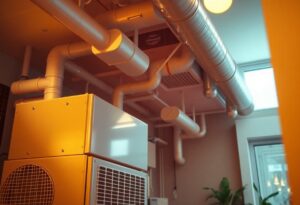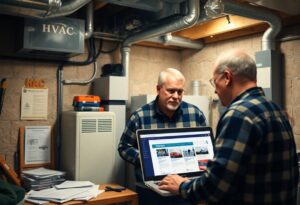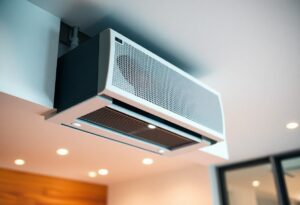Eco-Friendly HVAC Solutions: Unlock Green Cooling & Heating Benefits
It’s time to consider how your heating and cooling systems can impact the environment and your wallet. By switching to eco-friendly HVAC solutions, you can significantly reduce your energy consumption, lower your carbon footprint, and enjoy healthier indoor air quality. These innovative technologies not only provide efficient cooling and heating but also contribute to a sustainable future. In this blog post, you’ll discover how incorporating these systems into your home can yield both environmental and financial benefits, making it a wise investment for you and the planet.
Key Takeaways:
- Eco-friendly HVAC systems help reduce energy consumption, lowering utility bills.
- Enhanced indoor air quality is a significant benefit of green HVAC solutions, promoting healthier living environments.
- Utilizing renewable energy sources, such as solar or geothermal, contributes to sustainability and lowers greenhouse gas emissions.
- Smart HVAC technologies offer improved efficiency through better temperature control and automation.
- Investing in eco-friendly HVAC can increase property value and attract environmentally-conscious buyers.
- Regular maintenance of eco-friendly systems can extend their lifespan and optimize performance.
- Government incentives and rebates may be available to offset the costs of installing green HVAC systems.
Understanding Eco-Friendly HVAC Systems
To fully appreciate eco-friendly HVAC systems, it’s important to know what sets these systems apart from traditional heating and cooling methods. Eco-friendly HVAC solutions prioritize energy efficiency and use sustainable materials, which greatly reduces their environmental impact. This includes systems that leverage renewable energy sources, utilize advanced technology for improved efficiency, and often incorporate smart home features that allow you to monitor and optimize your energy usage.
What is Eco-Friendly HVAC?
By definition, eco-friendly HVAC systems are designed with the goal of minimizing environmental harm while maintaining optimal indoor air quality and comfort. These innovative systems often feature technologies such as geothermal heating and cooling, solar thermal systems, and energy-efficient heat pumps. All of these options aim to lower your carbon footprint by harnessing renewable energy sources or reducing energy consumption through smart engineering.
Advantages of Eco-Friendly Solutions
The adoption of eco-friendly HVAC systems comes with an array of benefits that enhance both your living environment and overall cost savings. By utilizing renewable energy sources, these systems help to significantly decrease your dependence on fossil fuels, leading to a reduction in harmful greenhouse gas emissions. Moreover, many eco-friendly HVAC options are eligible for government incentives or rebates, allowing you to save even more money upfront on your investment while also enjoying lower monthly energy bills.
In fact, transitioning to an eco-friendly HVAC system not only contributes positively to the planet but also creates a healthier living space for you and your family. With improved air quality and reduced pollutants circulating in your home, you can breathe easier knowing your HVAC system is working in harmony with the environment. Additionally, many eco-friendly systems are designed to be durable and efficient, leading to longer lifespans and reduced maintenance costs, ultimately benefiting both your wallet and the ecosystem.
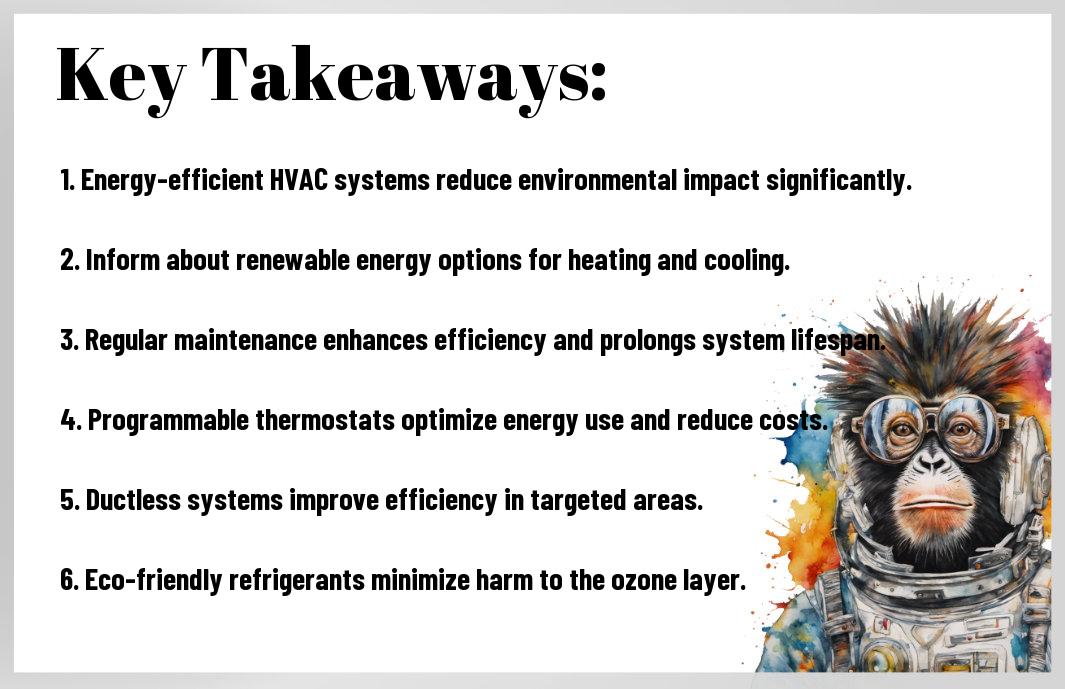
Energy-Efficient Heating Options
Any modern home benefits from energy-efficient heating options that not only reduce environmental impact but also lower your utility bills. By opting for systems designed with efficiency in mind, you are contributing to a more sustainable future while keeping your space comfortable throughout the colder months. Consider implementing technologies like heat pumps or solar heating to optimize your energy consumption and enjoy the benefits of eco-friendly heating solutions.
Heat Pumps
Heating your home with heat pumps can be one of the most effective methods for maintaining a consistent and comfortable indoor temperature. Unlike traditional heating systems that rely on fossil fuels or electric resistance, heat pumps transfer heat from the outside air or ground into your home during winter, and vice versa in the summer. This dual functionality not only provides exceptional comfort but can also lower your energy usage by up to 50%, significantly reducing your environmental footprint.
Solar Heating
Besides heat pumps, solar heating represents another innovative approach to energy-efficient heating. By harnessing the power of the sun, solar heating systems use thermal collectors to absorb sunlight and convert it into heat, which can then be used to warm your home’s water or living spaces. This not only reduces your reliance on conventional energy sources but can also save you substantial amounts on your energy bills.
At the same time, investing in solar heating comes with additional benefits, such as increasing the value of your property and potentially qualifying you for government incentives or rebates. By adopting this eco-friendly solution, you position yourself as a forward-thinking homeowner who prioritizes sustainability and energy independence. Embracing solar heating not only helps in reducing your carbon footprint but can also lead to long-term economic savings for you and your family.
Innovative Cooling Technologies
After the introduction of traditional HVAC systems, you now have access to a range of innovative cooling technologies that not only protect the environment but also enhance your comfort. These systems are designed to offer energy-efficient alternatives, allowing you to enjoy a well-regulated indoor climate while minimizing energy consumption and its associated costs. Exploring options like geothermal cooling and evaporative coolers provides you with opportunities to adopt more sustainable practices in your home or business.
Geothermal Cooling
Between the various options for sustainable cooling, geothermal cooling stands out as a significant advancement. This system utilizes the constant temperature found just below the earth’s surface, enabling you to cool your space efficiently. By installing a network of underground pipes, you can circulate a heat-transfer fluid to absorb heat from your home and transfer it to the earth, ensuring you achieve a consistently comfortable environment without relying heavily on conventional energy sources.
Evaporative Coolers
The process of evaporative cooling is another innovative technique gaining popularity as an eco-friendly alternative for air conditioning. These coolers use the natural process of water evaporation to lower air temperature, significantly decreasing your reliance on electricity. As the air passes through a moistened pad, the water evaporates, cooling the air before it circulates into your living space. This technology not only promotes lower energy bills but also contributes to improved indoor air quality, making it an attractive option for homeowners like you.
At a time when you’re considering energy-efficient solutions, evaporative coolers offer a particularly appealing option due to their low energy consumption. These units typically use less electricity than traditional air conditioning systems, which can greatly reduce your summer utility bills. Additionally, their environmental benefits are notable since they often utilize renewable water resources, helping you maintain a green home. Integrated into your living space, these systems not only enhance comfort but also support your commitment to sustainability.
Smart Thermostats and Controls
Keep your home comfortable while maximizing energy efficiency by integrating smart thermostats and control systems into your HVAC solutions. These advanced devices allow you to easily program temperature settings, detect occupancy, and provide usage statistics that help you monitor your energy consumption. By utilizing these technologies, you can optimize your heating and cooling needs, reducing waste and ultimately lowering your energy bills. With the capability to adjust settings remotely via smartphone apps, you can ensure your home environment is always set to your preferences.
Energy Management Systems
Against a backdrop of rising energy costs and increasing concern for the environment, Energy Management Systems (EMS) provide a valuable avenue for homeowners to manage their HVAC systems more effectively. An EMS enables you to consolidate information from multiple devices and analyze your energy usage patterns over time. With real-time data at your fingertips, you can make informed decisions on when and how to use your heating and cooling systems, allowing for significant savings and enhanced sustainability.
Benefits of Smart Controls
Any homeowner looking to embrace eco-friendly living should consider the benefits of smart controls. These systems can automatically adjust temperature settings based on your habits or the weather conditions outside, promoting optimal energy use without sacrificing comfort. Moreover, smart thermostats can identify energy spikes and provide insights to help you manage your energy consumption. By keeping your HVAC system running efficiently, you not only save money but also contribute to a greener planet.
It is evident that embracing smart controls results in a myriad of positive outcomes for your HVAC efficiency and overall home environment. Not only do they assist in optimizing energy usage, but your ability to track and modify settings remotely can result in significant savings over time. Additionally, smart controls often integrate with renewable energy sources, further enhancing your home’s sustainability. By investing in these technologies, you ultimately position yourself not only as a savvy homeowner but as a responsible steward of the environment.
Maintenance Tips for Eco-Friendly Systems
Now that you have invested in eco-friendly HVAC solutions for your home, keeping them in optimal condition is necessary. Regular maintenance not only enhances efficiency but also extends the lifespan of your systems. To ensure that you maximize the green cooling and heating benefits, consider these maintenance tips:
- Schedule regular inspections.
- Change your filters frequently.
- Clean the outdoor unit and remove debris.
- Check for any leaks or unusual sounds.
- Inspect and maintain ductwork for efficiency.
Any attention you give to maintaining your eco-friendly systems will pay off in the long run by sustaining their performance and ensuring you’re doing your part for the environment.
Regular Inspections and Servicing
To keep your eco-friendly HVAC systems running smoothly, scheduling regular inspections and servicing is necessary. Engaging a professional technician who specializes in green technologies can spot potential issues before they escalate, ensuring that your systems operate efficiently. During these inspections, components like your refrigerant levels, electrical connections, and moving parts are checked to ensure optimal performance.
In addition to professional servicing, you can take the initiative to perform minor checks yourself, such as clearing vents of dust and ensuring no obstructions are affecting airflow. This helps maintain the system’s efficiency and can prevent unnecessary strain on your HVAC units.
Sustainable Practices for Longevity
On top of regular inspections, adopting sustainable practices can significantly enhance the longevity of your eco-friendly HVAC systems. Simple habits, like utilizing programmable thermostats, adjusting your settings based on the season, and ensuring adequate insulation in your home, can make a noticeable difference in energy consumption. By reducing the demand on your HVAC systems, you not only lessen your carbon footprint but also extend their life.
Understanding the simple habits that contribute to the lifespan of your system is vital for overall sustainability. Integrating practices like using thermal curtains to manage indoor temperatures or setting your thermostat a few degrees higher in summer (or lower in winter) promotes energy efficiency. By doing this, you can significantly reduce wear and tear on your systems while enjoying a comfortable home environment. Utilizing these methods benefits your home and the planet, paving the way for a greener future.
Government Incentives and Rebates
Unlike many traditional home upgrades, opting for eco-friendly HVAC solutions can benefit you financially through various government incentives and rebates. These programs aim to lower the costs associated with implementing energy-efficient technologies for your heating and cooling needs. By taking advantage of these incentives, you can not only contribute to a more sustainable environment but also make a more budget-friendly investment in your home.
Tax Credits for Green HVAC
Against the common belief that switching to green HVAC solutions is a hefty investment, you can actually relieve some of that financial burden through tax credits. Many federal and state governments offer substantial tax breaks when you install qualifying energy-efficient heating and cooling systems. By simply keeping track of your expenses and meeting the qualifications, you can decrease your tax liability and offset the cost of your environmentally friendly upgrades.
Local Programs Supporting Eco-Friendly Initiatives
Above and beyond federal incentives, many local governments and utility companies run programs to encourage the adoption of eco-friendly HVAC systems. These programs often include rebates, low-interest loans, or even grants to help you offset the initial costs of energy-efficient installations. By participating in these initiatives, you can enhance your home’s comfort while significantly cutting your energy bills and carbon footprint.
In fact, many municipalities have launched local programs that cater specifically to homeowners like you who are interested in going green. These could include energy audits, financial assistance for purchasing high-efficiency systems, or even educational workshops about sustainability practices. By engaging with these community resources, you’re not only saving money but also contributing to a collective effort toward creating a cleaner environment, making your commitment to an energy-efficient lifestyle even more impactful.
To wrap up
Considering all points, embracing eco-friendly HVAC solutions not only contributes to a healthier planet but also enhances the efficiency of your heating and cooling systems. By investing in these green technologies, you can significantly reduce your carbon footprint while enjoying lower energy bills. Options like geothermal systems, ductless mini-splits, and solar-powered units offer sustainable alternatives that can be tailored to meet your specific needs, ensuring that your home remains comfortable year-round. Additionally, utilizing smart thermostats can optimize your energy use, offering further savings and convenience.
Ultimately, the decision to transition to eco-friendly HVAC options is an investment in both your home’s value and the environment. By choosing greener solutions, you align yourself with a sustainable lifestyle while also benefiting from the latest advancements in heating and cooling technology. As you consider your next steps, prioritize energy-efficient practices that resonate with your commitment to making thoughtful choices for your home and the Earth. Together, you can cultivate a more sustainable future with every season that passes.
FAQ
Q: What are eco-friendly HVAC solutions?
A: Eco-friendly HVAC solutions refer to heating, ventilation, and air conditioning systems designed to minimize environmental impact. These systems often utilize renewable energy sources, higher efficiency ratings, and advanced technology to reduce energy consumption and greenhouse gas emissions. Examples include geothermal heat pumps, solar air conditioning units, and energy-efficient air filtration systems.
Q: How do eco-friendly HVAC systems benefit the environment?
A: These systems significantly lower energy usage, which in turn reduces the amount of fossil fuels burned for electricity generation. By lowering carbon footprints and using sustainable materials, eco-friendly HVAC systems help to reduce air pollution and combat climate change. Additionally, many of these systems can improve indoor air quality, contributing to healthier living environments.
Q: Are eco-friendly HVAC solutions more expensive than traditional systems?
A: While the initial investment in eco-friendly HVAC systems can be higher than conventional systems, they often lead to substantial savings over time. Enhanced energy efficiency translates to lower utility bills and tax incentives or rebates may help offset installation costs. Additionally, longer lifespans and reduced maintenance needs for eco-friendly systems can contribute to overall cost savings.
Q: What types of eco-friendly HVAC systems are available?
A: There are several types of eco-friendly HVAC solutions available, including geothermal heat pumps, solar thermal panels, ductless mini-split systems, and high-efficiency furnaces and air conditioners. Each option has its benefits and is suited for different types of buildings and climates. Consulting with an HVAC professional can help determine the best fit for your needs.
Q: How do I maintain my eco-friendly HVAC system?
A: Maintenance practices for eco-friendly HVAC systems are similar to traditional systems but may require specialized knowledge. Regularly replace or clean filters, check ducts for leaks, and schedule professional inspections annually. It’s also important to monitor system performance and address any issues promptly to ensure continued efficiency and effectiveness.
Q: Can retrofitting my existing HVAC system to be eco-friendly be beneficial?
A: Yes, retrofitting your existing system can greatly enhance its efficiency and reduce environmental impact. This may involve adding insulation, upgrading to a smart thermostat, modifying ductwork, or integrating renewable energy sources. Such updates can improve comfort levels, lower energy bills, and extend the lifespan of your HVAC system.
Q: What are some financial incentives for choosing eco-friendly HVAC solutions?
A: Many governments, utilities, and organizations offer financial incentives for homeowners and businesses that install eco-friendly HVAC systems. These incentives may include tax credits, rebates, financing programs, and energy efficiency grants. It’s advisable to check with local energy providers and governmental agencies to explore available options in your area.
Team HVAC Talk Magazine has written this post. Stay informed and connected with the latest in HVAC—join us for expert advice, troubleshooting tips, and news updates. Don’t miss out, follow us now! #HVACExperts #HVACTips #StayInformed #HVACProTalk.
Learn more and join our mailing list for updates.
